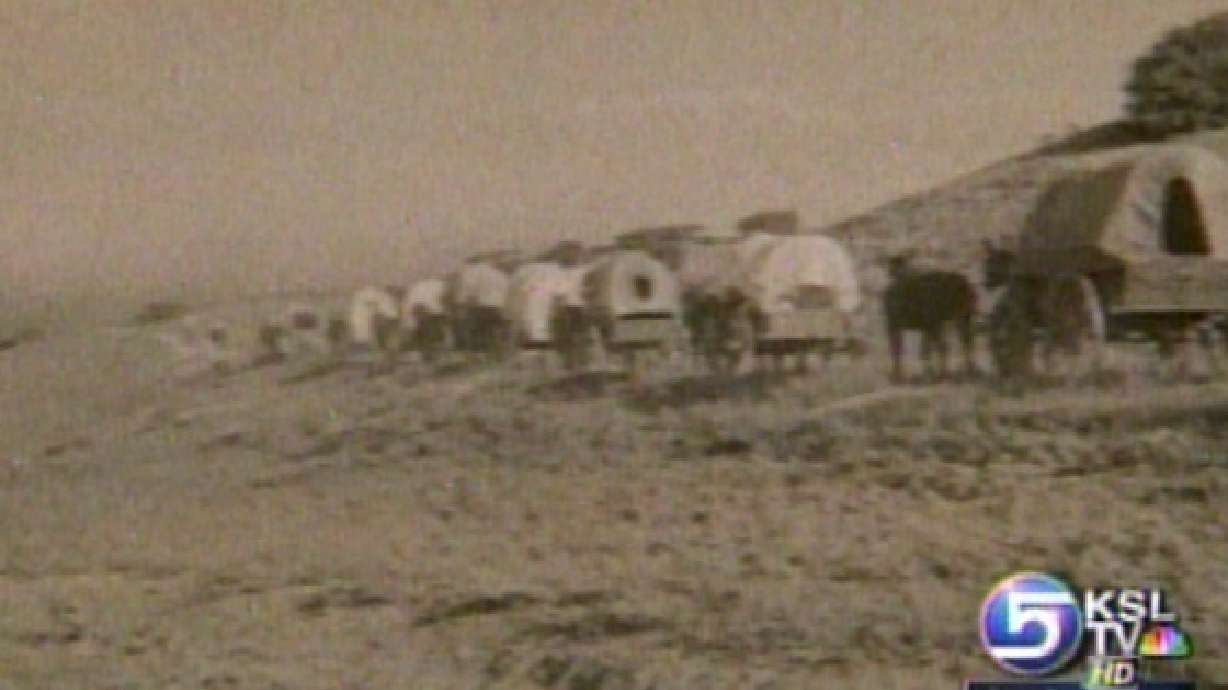Estimated read time: 3-4 minutes
This archived news story is available only for your personal, non-commercial use. Information in the story may be outdated or superseded by additional information. Reading or replaying the story in its archived form does not constitute a republication of the story.
Carole Mikita ReportingHundreds of people from throughout the country are gathering this weekend in Southern Utah to commemorate a tragedy. This is one of several memorial services marking the 150th anniversary of the Mountain Meadows Massacre.
On September 11, 1857, some Latter-day Saint pioneers and a few Paiute Indians murdered members of an Arkansas wagon train. Descendants of both the victims and the perpetrators came together, they say, to preserve history.

Sharon Chambers said, "I think we have to remember the history in our families, but we don't need to cling to it. We need to let go of it and live our lives and try to make our ancestors proud of the things that we do and how we live."
Geralyn Jones Clayton said, "It's a day of unity and truth and forgiveness and love, and the message meant a lot to me today."
Historians for The Church of Jesus Christ of Latter-day Saints have written what they hope will become the definitive book on the subject.
Binders by the hundreds, full of research materials, fill book shelves in Rick Turley's office at the LDS Church Department of History and Archives. He and colleagues Ron Walker and Glen Leonard have worked for six years, searching the country for undiscovered letters, journals, diaries and federal records of what is known as the Mountain Meadows Massacre.
On September 11, 1857, 120 men, women and children, members of a wagon train passing through Southern Utah, were murdered by Latter-day Saint settlers.
Turley said, "As best as we can determine, there were between 50 and 60 who had some role in the Mountain Meadows Massacre, either as perpetrators or as witnesses of what went on. We're talking about white, Mormon men in Southern Utah."
The toughest question the authors try to answer is why would men who profess devotion to their faith and had never committed crimes before do this? Turley says he studied the history of violence and believes the Mormon pioneers viewed the Arkansas wagon train members as "others."
"The ‘other' becomes 'the enemy' and at that point, the language of war comes into play. People began to speak about 'vanquishing the enemy, destroying the enemy'. That's what happened in 1857," Turley says.
Another big question: Did then-Church President and Territorial Governor Brigham Young order the massacre? Turley says no. He says church archives has the copy of Brigham Young's letter telling the pioneers to "leave the wagon train alone."
"The original, freshly printed letter was pressed between moistened pieces of onion skin and then put into a book press, and that letter is in its proper sequence, among other letters from that same time period, so it's unquestionably authentic," he said.
Turley says some Southern Utah families have known that their ancestors participated in the killings, others are, with this research, just finding out. "There's a member of our staff here who's part of a family of one of the people who was indicted. And I mentioned it to him, and he had no idea."
For the descendants of the victims and the murderers, Turley hopes this new book will bring healing. Oxford University Press will publish the book "Massacre at Mountain Meadows" sometime next spring.
The authors are considering a second book focusing on arrests, convictions and the one man who was executed for the crime.








